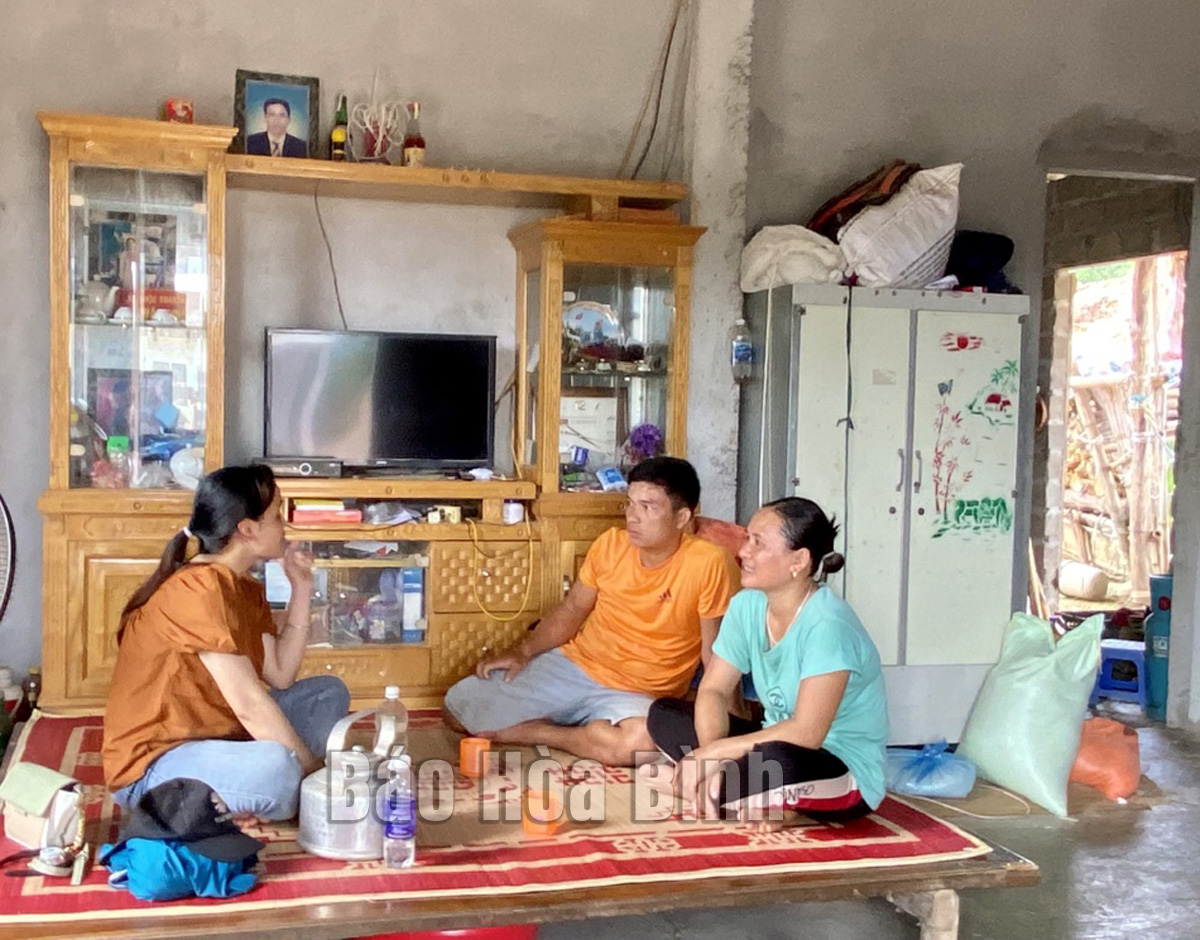


The peaceful "oasis”.
The resettlement area of Da Tu hamlet is called an "oasis” because it is located on a hill with an upside-down topography, and it is almost separated from the outside. However, they are used to traveling by boat, so it is not so inconvenient to spend 5 minutes to cross the Da river to the other side for the local people. Pointing to the opposite direction, where the great grandparents used to live, Ms. Dinh Thi Hue recalled: Then, with the uneven terrain, facing with a month-long flood that caused all of the families' houses to crack and sink. That was also the reason why 33 out of the 77 households in Tup and Tre hamlets (now merged into Tup hamlet) had to relocate immediately from the unsafe landslide point.

After moving to Da Tu resettlement area in Tien Phong commune (Da Bac), Ms. Dinh Thi Hue's family has settled down.
Moving to the new place of residence, the households have been paid attention. to the infrastructure arrangement by the province. All the families moving there have been supported 20 million VND, some, due to more severe damage, have been supported 40 million VND to build their houses. The total investment cost to build the resettlement area is 54 billion VND. In particular, the resettlement area has been carefully selected and surveyed to ensure safety, especially to avoid the risks of natural disasters and landslides. Mr. Dinh Cong Canh, one of the households living in the resettlement area, said: When I was still living in the old place, every time when it rained and windy, I was really afraid of houses collapsed. Since moving to the resettlement area, more than 3 rainy and stormy seasons have passed, the households have stabilized their shelter. Although the "oasis” is sadder than the old place due to its independent terrain, life is more stable and the houses are built firmly. The families have access to electricity for lighting, adequate clean water supply, and convenient and sustainable concrete paths...
Being happy with the new life
With the attention of the Party and the State, the lives of then people in Da Tu resettlement area have soon been stabilized. At the new place of residence, besides being taken care of the people's living infrastructure for the production and the community activities, many supporting programs and policies have been implemented. They include loans for developing production, supporting seed, plants, livestock, training and guiding to improve the scientific and technical skills to help the people improve their livelihoods and reduce poverty sustainably. The households are guaranteed the conditions for economic development with the main occupations such as taking care and protecting forests, intensive farming of crops, fishing and aquaculture. In which, the main source of income is from cage fish farming.
According to the statistics, the households in the resettlement areas have developed over 200 fish cages, each family has at least 2 fish cages or more on average. The average income from fish farming of the households ranges from several tens of millions of VND to hundreds of millions of VND every year. Typically, Mr. Le Dinh Hoi's household gets an income of 100-300 million VND every year.
With the stable income, the quality of life of the households is increasingly improved. Currently, 100% of the households have at least one motorbike, many families have afforded to buy valuable living amenities such as refrigerators, televisions, etc. The desire of the local people after they settle down in a new place of residence is that a village cultural house can be built in the planned area, creating playgrounds for children to further improve their lives.